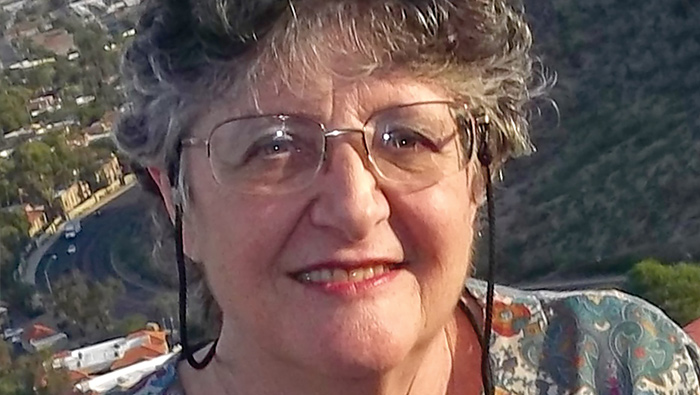Originally from South Africa, Valley resident Rosemary Abrami periodically does presentations on South Africa and Jewish life in that country. The following historic summary is based largely on her presentation materials.
South Africa was part of the British Commonwealth from the early 1800s until 1961, when it became a republic and an independent part of the Commonwealth. Few Jews had arrived in the region before the 1820s.
Early migration patterns to South Africa mirror the experiences of Jews to North America, though on a smaller scale.
Like many South African immigrants in the 1880s to early 20th century, Rosemary’s grandfather Samuel Epstein fled the czar and pogroms when emigrating from Lithuania to South Africa at age 17. Initially, he went door to door on foot selling goods, then with a horse and cart; finally he and a cousin opened a little shop.
Coal, diamond and gold mining were big in that era. Many Jewish immigrants of this era supplied the miners, rather than working as miners. In South Africa, the Jewish connection to the diamond industry flourished. The diamonds were mined in South Africa, cut in Brussels and sold in New York.
Those in the first wave of Jewish immigration were primarily involved in trade and retail. But the next generation became doctors, lawyers, businessmen. Rosemary even has an opera singer in her family.
Many European Jews fled to South Africa as the Nazis rose to power in the 1930s. Following World War II, many surviving German and Austrian Jews arrived to begin new lives.
Another wave of immigrants arrived in the 1960s-70s – this time Israeli Jews.
South African Jews have been and continue to be ardent Zionists. Many made aliyah to Israel.
“When I was a child, Granny had a JNF Blue Box by her telephone, and any time anyone made a call they had to put a “tickey” (small coin) in,” says Rosemary. “She bought hundreds if not thousands of trees.”
While doctors were in high demand in the United States, Rosemary says it was difficult for most South Africans to get into America. Rosemary married an American, but it still took four years and $4,000 to get her citizenship. Leaving South Africa, you could only take personal items you had owned for at least three years, she says.
The individuals and families featured on the following pages have a similar history. As they have built new lives in Arizona, they have also enriched our community with their professional skills and passion for Jewish life.
To schedule a presentation on South Africa, contact Rosemary at [email protected] or 623-546-8639 (after Dec. 6).






